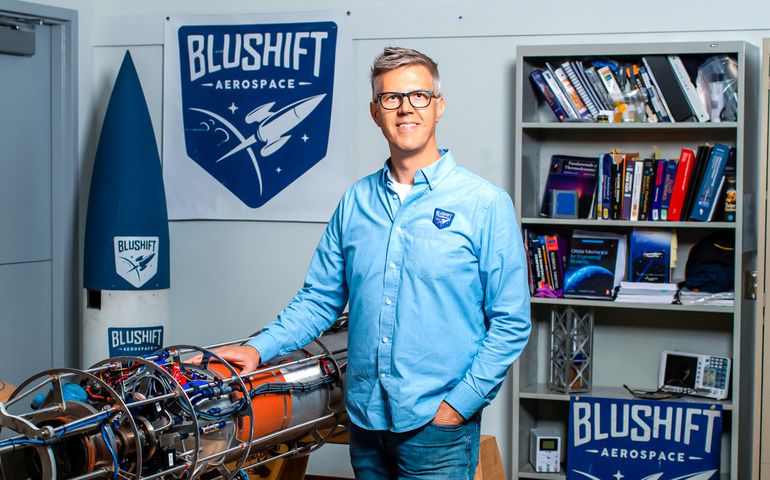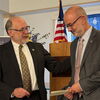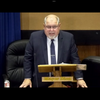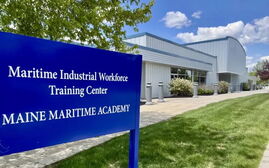Next: Sascha Deri, rocket scientist aiming high — really high
 Photo / Tim Greenway
Sascha Deri launched bluShift in 2014 out of TechPlace.
Photo / Tim Greenway
Sascha Deri launched bluShift in 2014 out of TechPlace.
Sascha Deri, CEO of bluShift Aerospace, has a lofty vision. He grew up in Maine and earned degrees in physics and electrical engineering. In 1999 he co-founded altE Store, a Massachusetts solar company that he still runs. His next venture, bluShift, launched in 2014, out of TechPlace at the Brunswick Landing complex. “Both companies were born out of a passion to take science and create technology that benefits humanity and our planet,” Deri, a resident of Brunswick, told Mainebiz.
Today, Deri and his bluShift team of fewer than a dozen have been working to develop a line of eco-friendly commercial rockets that will ultimately carry nanosatellites and other small payloads into low-earth orbit. Backed by a variety of investments, including from the Maine Technology Institute and a crowdfunding campaign, the company has set its sights on becoming an “Uber to space.”
Mainebiz: What’s your timeline for the next stages of bluShift’s growth?
Sascha Deri: We will begin commercial suborbital launch services starting next year with the launch of Starless Rogue, targeting civic and academic researchers and also commercial customers. We see the strongest growth potential in launching commercial nanosatellites into polar orbit, which Maine is uniquely capable of enabling on the East Coast. In two to three years after our launch of Starless Rogue we will launch our orbital rocket, Red Dwarf. By 2025 we expect to be launching over a half a dozen times, both suborbitally and orbitally, and to be cash-flow positive.
MB: How do you sum up your future vision for bluShift?
SD: In the market for launching small payloads and nanosatellites to orbit, there are just a few players actually launching today. None of them offer the unique, dedicated small launch service that caters to individual customers the way bluShift will.
MB: What are your feelings about that future?
SD: I feel both very excited and fortunate. We have an incredible opportunity to pounce on a growing, niche space launch market while demonstrating to the world that space transport can be done in a more Earth-responsible way. The path ahead would be entirely daunting for me if it wasn’t for the trust I have in our team of highly capable, extremely hard-working, gritty and dedicated people.
MB: What are the pros and cons of being based in Maine?
SD: Being in Maine means that talented individuals who love aerospace but also love Maine now have an option outside of going to Florida, Texas or California. Perhaps the biggest challenge has been to get regional private investors in comfort zones outside of Maine’s “four F’s” — forestry, farming, fishing and fermentation. We realize that if we were located on the West Coast, access to capital would be easier. However, we were very fortunate on two fronts, both thanks to the Maine Technology Institute. MTI has been by far our greatest investor, not only financially but also with sage advice and assistance.
MB: What are the biggest business lessons you’ve learned as bluShift has grown?
SD: Delegating to the right people at the right time. I went through this with my solar company. It’s easier said than done. Delegating well can only be done if you hire well too. Team chemistry is important, and team size matters. Relentless persistence is also key, and means you have a chance of success where others give up.
MB: Could Maine someday become “Cape Canaveral North”?
SD: Absolutely — only with better beer, lobster, lodging and landscape.














0 Comments